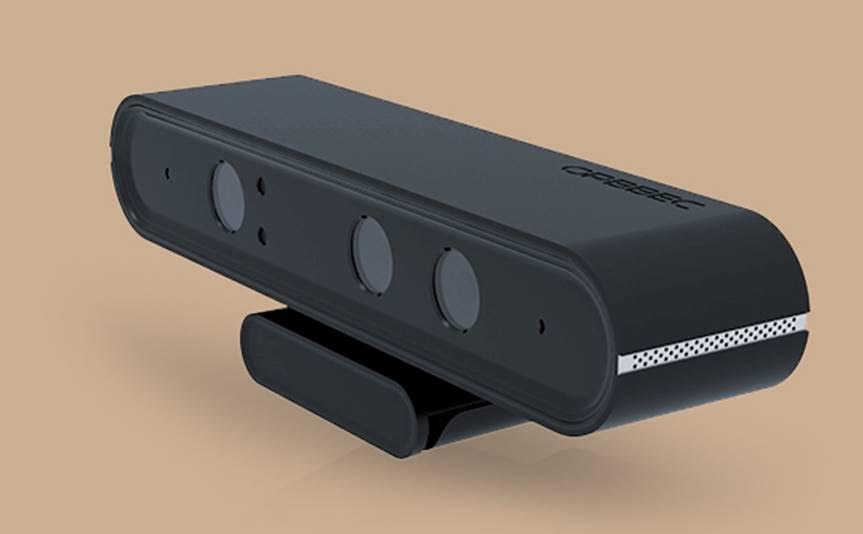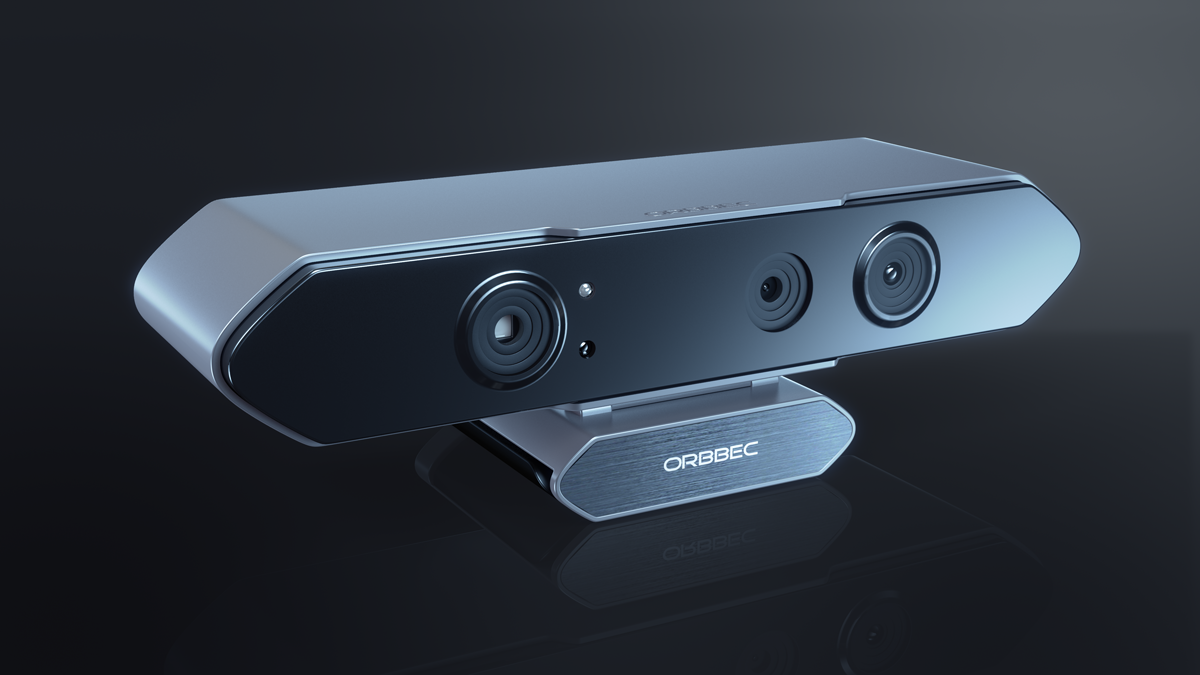For reasons that may not be immediately clear, the next generation of intelligent computers is inextricably linked to the evolution of 3D CAD software and 3D imaging devices. Thinking about it, it does make sense, as computers will need to be able to see objects in 3D in order to accurately understand what they are looking at and, thus, draw their conclusions.
Orbbec, a scientific group that has been studying 3D measurement and Artificial Intelligence, is jump-starting the next generation of intelligent vision tools by launching two new 3D camera devices, the Orbbec Astra Pro and the Orbbec Persee, on a new Indiegogo crowd funding campaign debuting today.
Both are high-definition, color 3D cameras; however the Persee model is the first such camera with an integrated, fully-functioning computer. Creative coders, hackers, and pioneering developers will be able to use Orbbec Persee to build inventive 3D apps for a range of use cases, including home, office, retail, education, entertainment, manufacturing, robotics, creative projects, and do-it-yourself experimentation.
Astra Pro is available at an early bird price of $99, while Persee is offered at a special introductory price of $179. If the campaign is succesful the devices will become commercially available in 2016. “We believe that the future of computing is 3D and all consumer devices will include 3D cameras in the near future,” said Yuanhao (Howard) Huang, founder and CEO of Orbbec. “Achieving this vision requires superb 3D cameras that are affordably priced and universally available. It also requires a world-class hardware and development platform, which we are delivering with Orbbec Persee.”
Along with the Astra Pro 3D camera, Persee includes a quad-core 1.8GHz CPU, 600MHz GPU with OpenCL support, Wi-Fi and high-speed Ethernet, 2GB DDR3 RAM, and an embedded 16GB eMMC Flash. “Orbbec Persee is a long awaited, and much needed catalyst for the development of creative, intelligent computing experiences,” said George Barbastathis, Singapore Research Professor of Optics and Professor of Mechanical Engineering at MIT. “Reaching this level of 3D sophistication, at an affordable price, is groundbreaking.”
Orbbec’s approach includes both the production of a hardware platform and the development of software tools that can enable developers to deliver new 3D experiences. For the Astra Pro range of 3D cameras this means high-resolution capturing and the ability to filter out low-quality depth pixels during 3D scanning and point cloud acquisition. The system will also have an industry-leading range of 0.4m to 8m, making it an excellent option for a wide range of scenarios, including gesture control, robotics, and 3D scanning. Orbbec also assures high accuracy (depth measurement of 0.5 cm at a distance of 2 meters) and low latency.
These features will be supported by the multi-platform Orbbec Astra SDK (available for download at Orbbec.com), which supports Windows, Linux, OSX, and Android, as well as creative coding frameworks including Processing, while openFrameworks, Unity 3D, and Cinder support is coming soon. Orbbec members have been working on consumer 3D sensor as well as human level artificial intelligence for many years. During the past 2 years, this research has accelerated resulting in the development of a 3D computational chip as well as a 3D sensor. The fact that Orbbec is probably on the right track is further supported by the fact that a certain company called Apple bought Israel-based Primesense two years ago and it seems that it intends to use Primesense for the very same goals.




